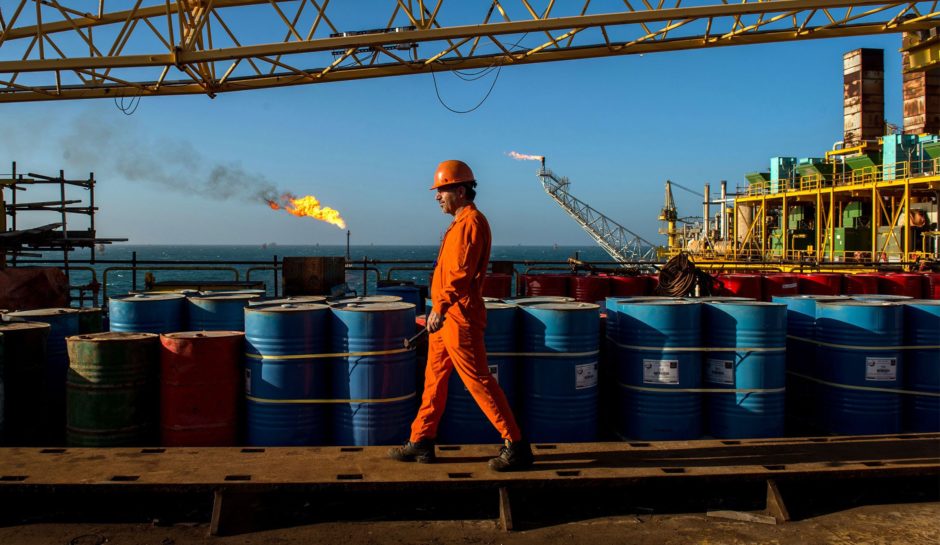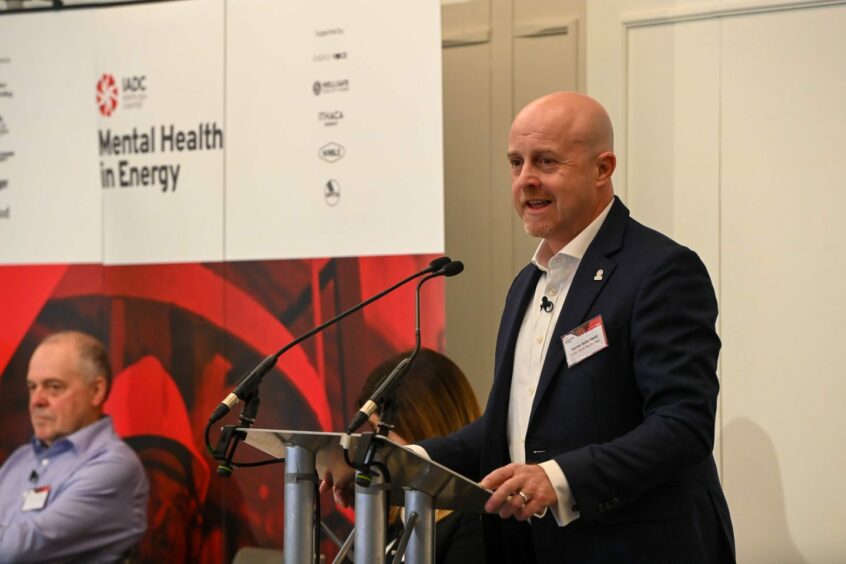
After shocking figures were shown on the mental health of offshore workers, a new survey is set to launch to dive deeper into the wellbeing of those in the North Sea.
The International Association of Drilling Contractors (IADC), alongside Step Change in Safety and Robert Gordon University, is set to launch a survey to gauge the mental health of those working in the North Sea.
Last year a report published by the IADC found that 40% of onshore and offshore remote rotational shift workers experienced suicidal thoughts some or all of the time while on duty.
After its initial report, the IADC launched the call to arms in the form of a Mental Health Charter as it looked for more industry support for a 10-point plan to improve the mental well-being of workers in the North Sea.
There was a lot of support from firms for the charter as 35 North Sea organisations joined by the end of last year.
Chairman of the North Sea Chapter of the IADC, Darren Sutherland, told Energy Voice: “We had a good initial surge of people signing up for the charter and on the back of the charter what we’ve done is we’ve formed a Mental Health Taskforce which consists of folks from the mental health space.
“We’ve got three clinical psychologists and mental practitioners on that team, Graeme Kinghorn from Mental Health Aberdeen sits on that, and we’ve got Step Change in Safety and OEUK.”
This task force does not aim to help individuals’ mental health directly, what it aims to do is “help support industry challenge industry on whether we’re doing enough,” Mr Sutherland explained.
This group also intends to “support and show guidance” to firms that need it.
A sub-committee from the mental health task force has now been set up and is engaging with the firms that signed up to the charter and are using its recommendations.
Looking to launch a mental health survey in summer
Moving forward with its plans to support mental health in the offshore sector, the IADC is looking to assess the state of mental well-being among the North Sea workforce. To do this it has enlisted the help of other organisations.
Mr Sutherland said: “We are also engaging with Step Change in Safety and we’re talking to Robert Gordon University (RGU) to look at the creation of a mental health and well-being survey for industry and is to cover not only oil and gas but also renewables and marine, and we’re hoping to get the Marine Safety Forum involved in that as well.”
The findings of this survey are set to be used as the “basis” for an initial annual report on mental health and well-being in the sector.
This North Sea-focused report will then guide future actions from the task force, the IADC chairman explained.
With hopes to roll out the questionnaire by the summer, the IADC and RGU have not set a specific date as “it’s quite a big project that it’s quite a wide and encompassing survey.”
Mental health reporting in the North Sea and the stigma surrounding it
Currently, the Health and Safety Executive (HSE) has the power to serve notices to firms regarding workplaces or cultures that cause harm to mental health offshore. However, law firm Brodies found that there is no record of the HSE ever serving a notice relating to mental well-being.
Victoria Anderson, a senior associate at Brodies who specialises in health and safety law, explained: “Mental health is covered by the remit of the 1974 act and so it’s always been something which the HSE has the power to investigate.”
Ms Anderson believes that “the social mandate in terms of looking at mental health has increased” and that the lack of reporting will change as stigma around speaking out about mental health issues becomes less prevalent.
Mental health is a difficult thing for the HSE to serve a notice on for a number of reasons, first of all, the watchdog needs to identify that the cause of any mental health issues originates entirely from a workplace and culture and cannot be an amalgamation of personal and work issues.
Secondly, multiple workers need to report mental health issues for notices to be served.
“I think historically what will have definitely been a feature,” the senior associate continued, “are the changing social attitudes, the stigma around mental health.”
“Until relatively very recently, this is just my opinion and I suppose I’m guessing, but I think particularly in the offshore sector, you wouldn’t encounter a large number of people who would be willing to raise a concern about their mental health to their employer because of social stigmas around mental health at that time.”
A HSE spokesperson told Energy Voice: “There is a legal duty to ensure the risks from work-related stress are properly assessed.
“Where a risk is identified, employers must take steps to either remove or reduce it as far as reasonably practicable.”
With poor mental health being an increasingly spoken about issue, IADC looks to continue its work in supporting firms in fostering the right environment for workers.
“I think we’re definitely across the start line but we’ve still got a pretty good race to run,” Mr Sutherland said as he looks to expand the work of the mental health charter throughout 2024.
Recommended for you

 © Supplied by Kenny Elrick/DC Thom
© Supplied by Kenny Elrick/DC Thom © Supplied by Brodies
© Supplied by Brodies